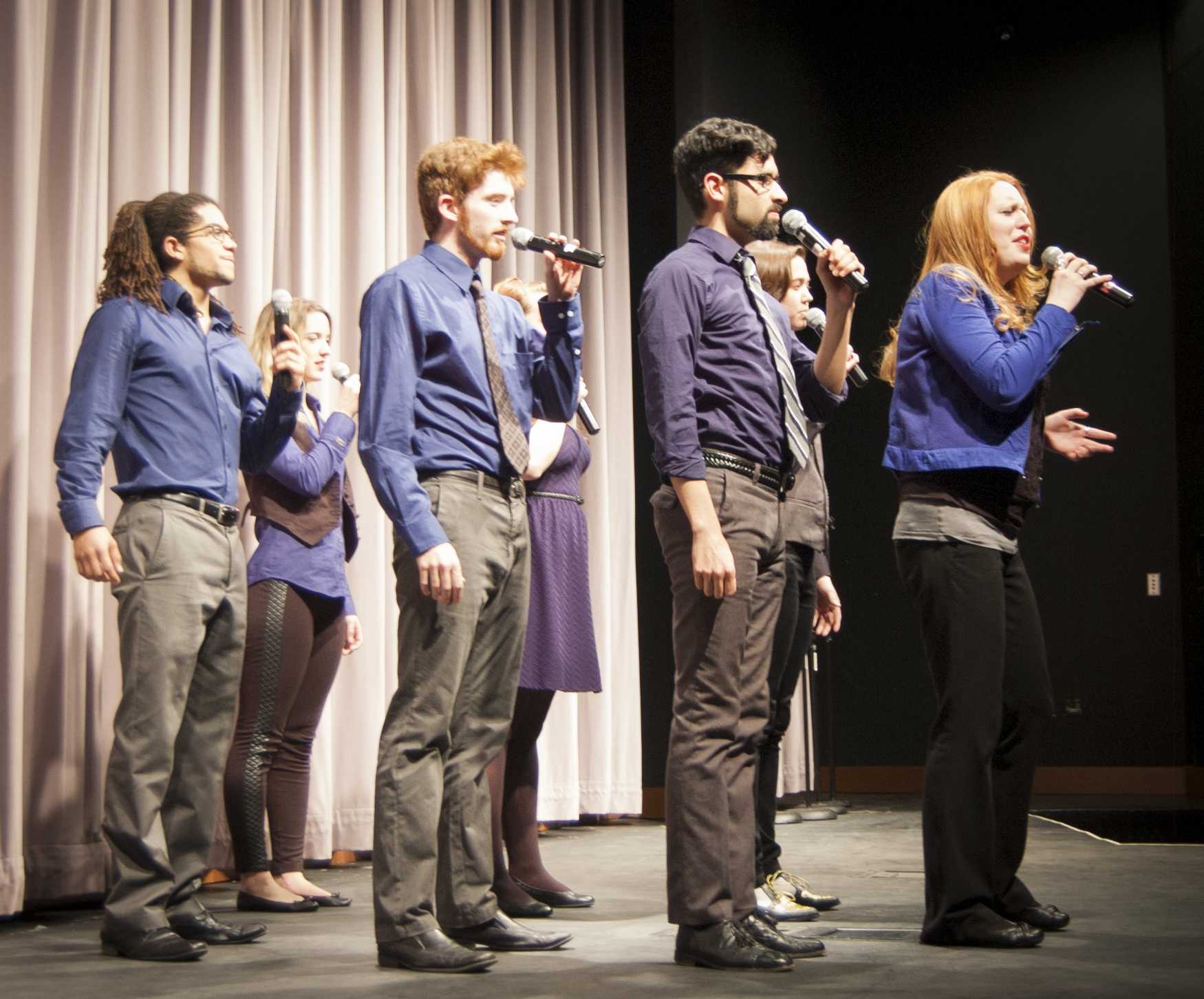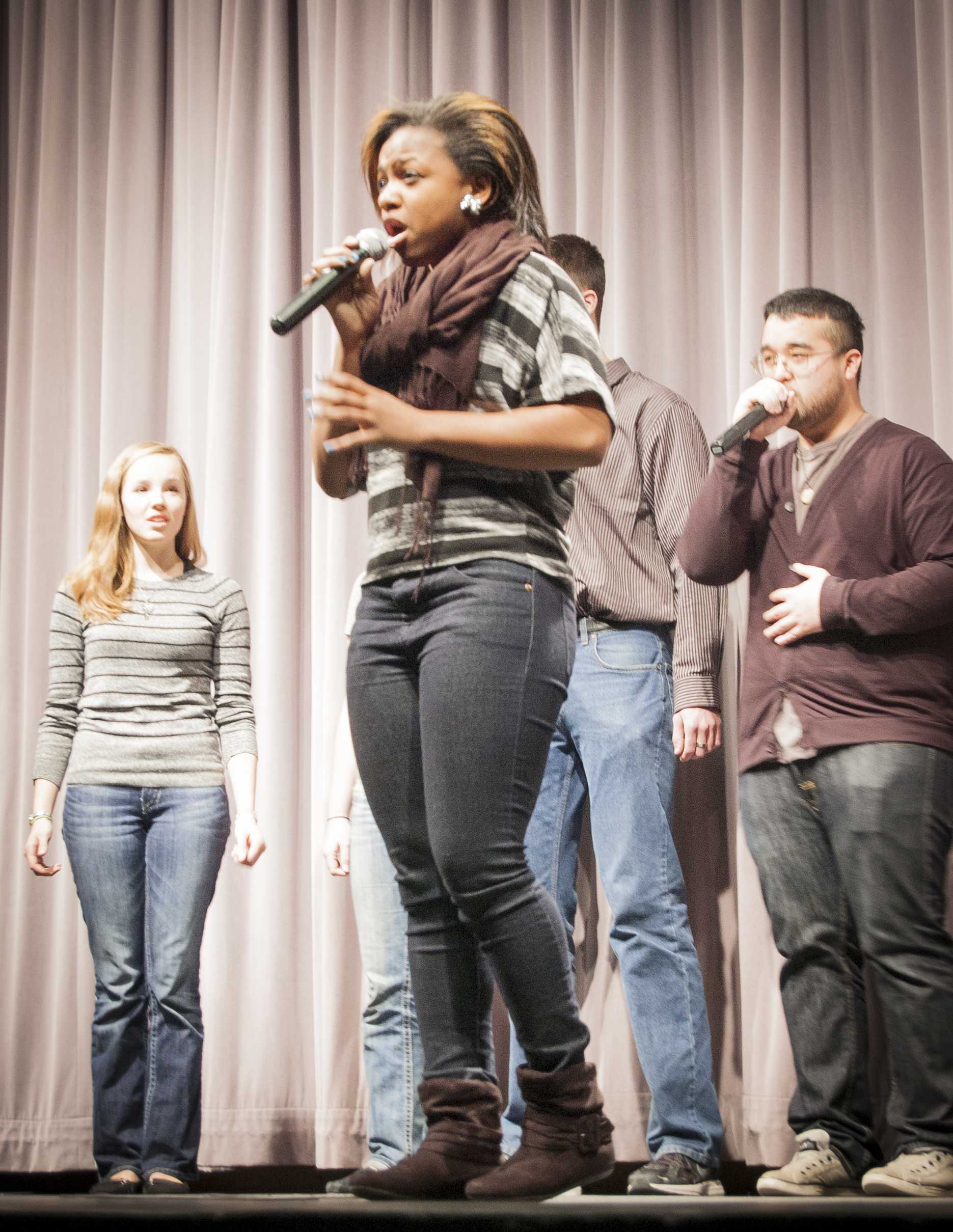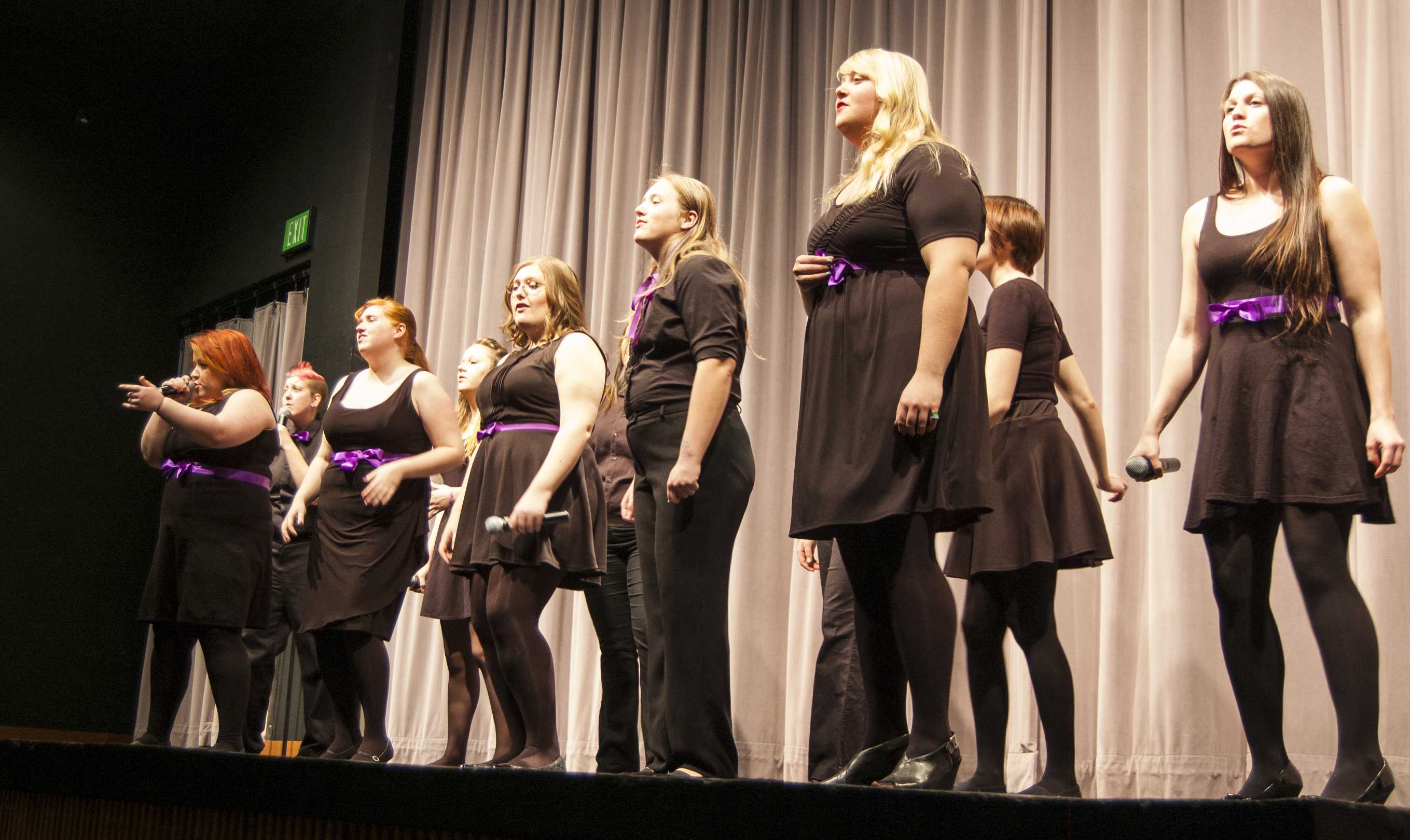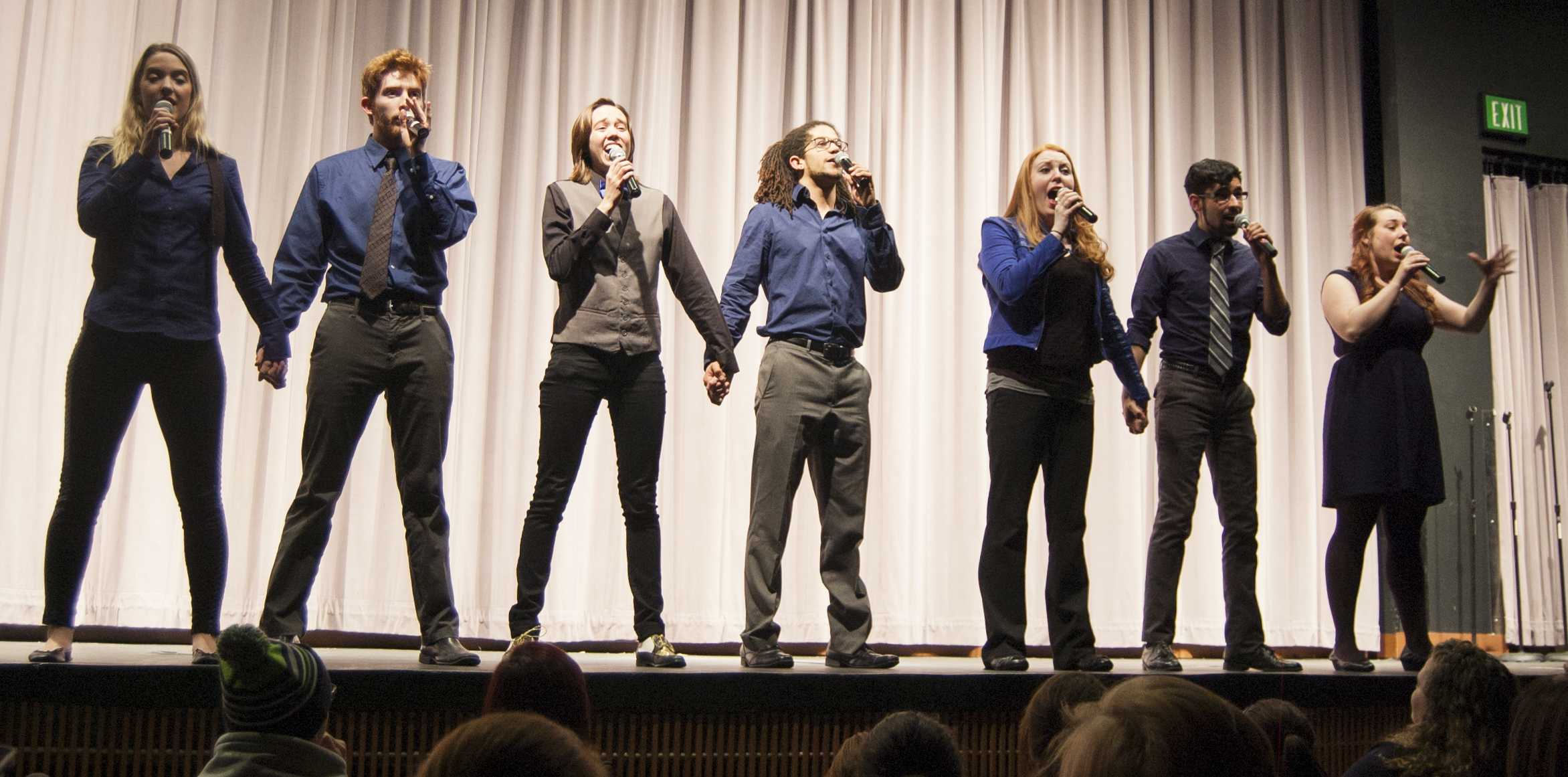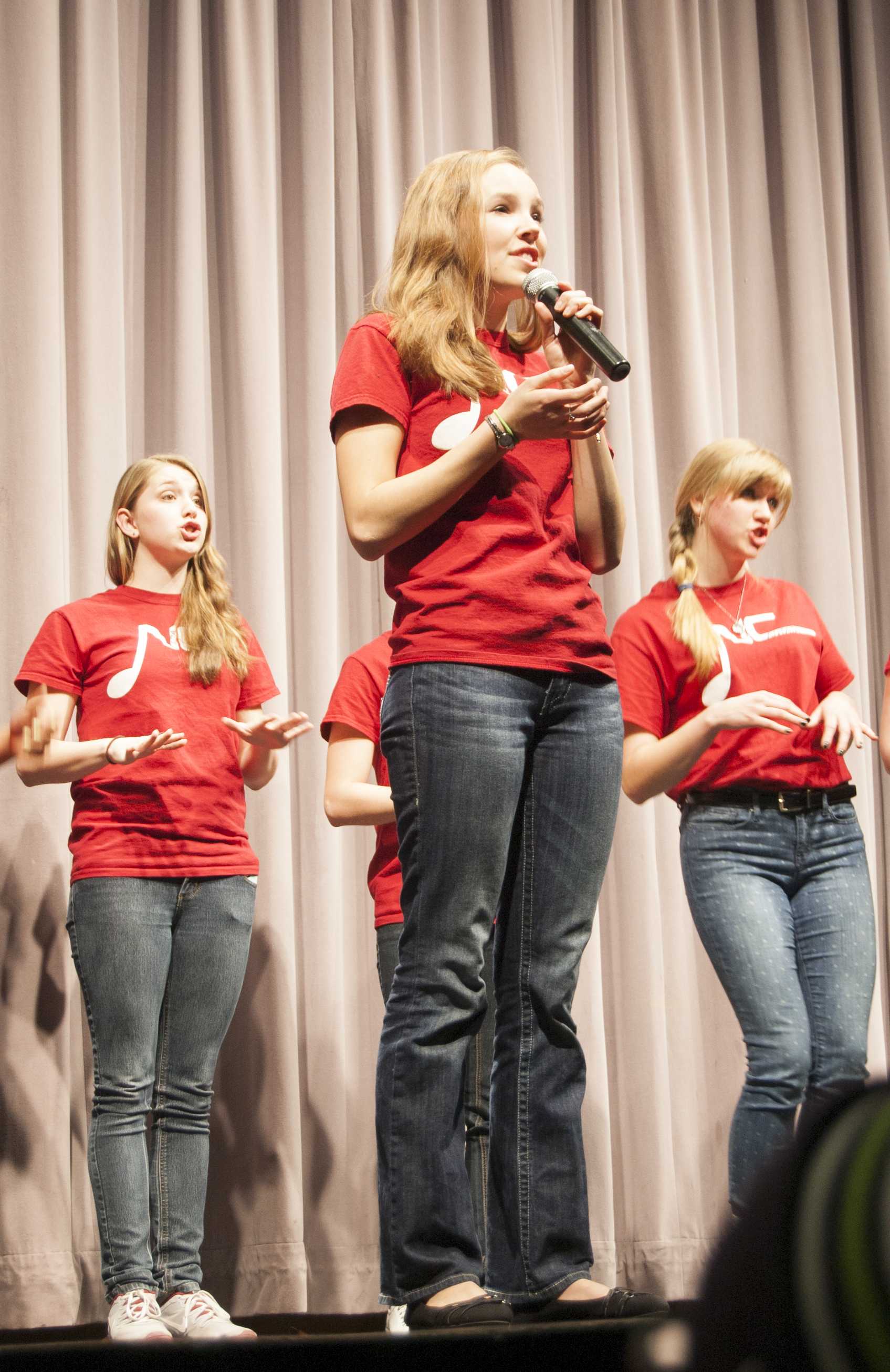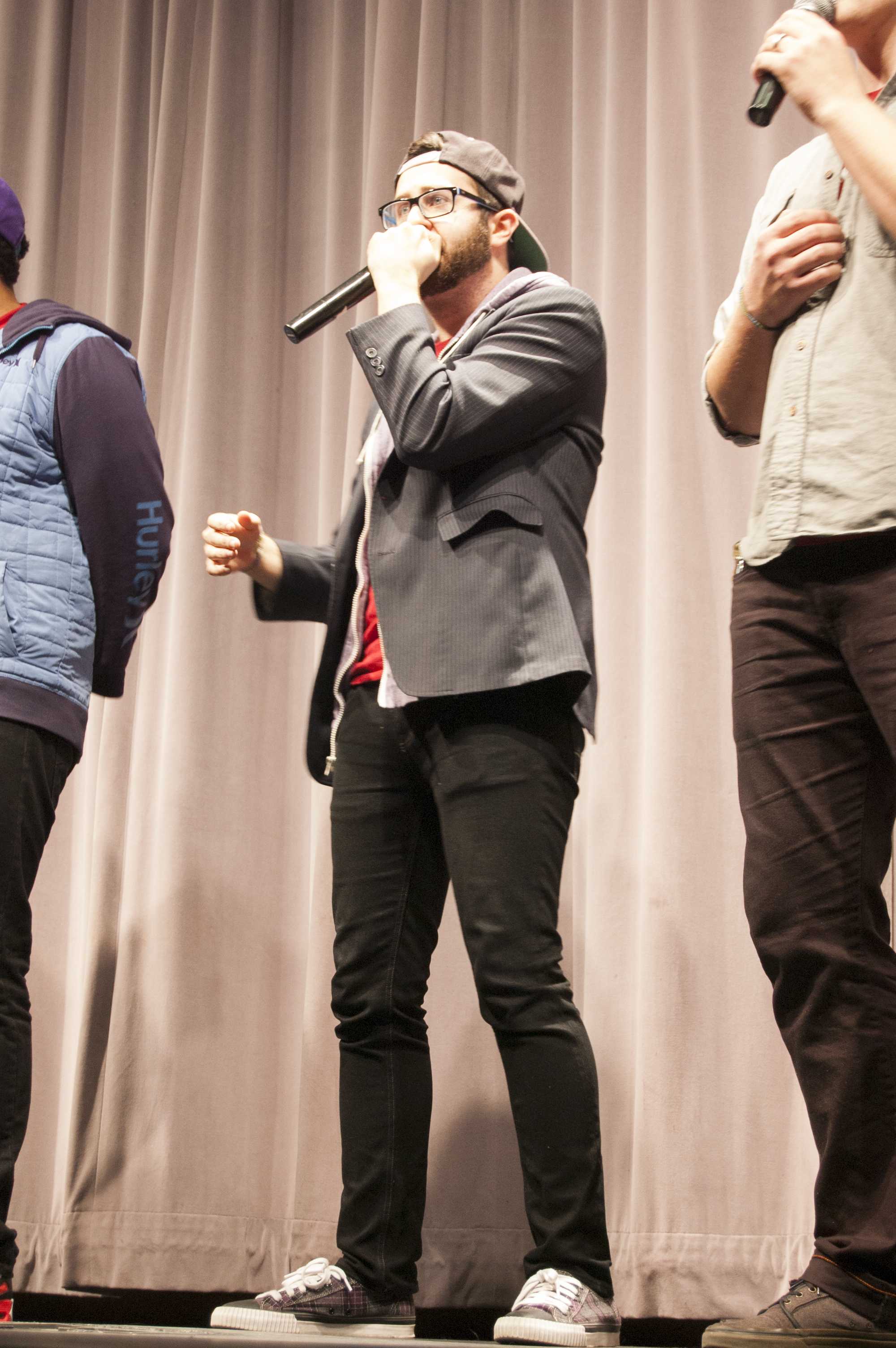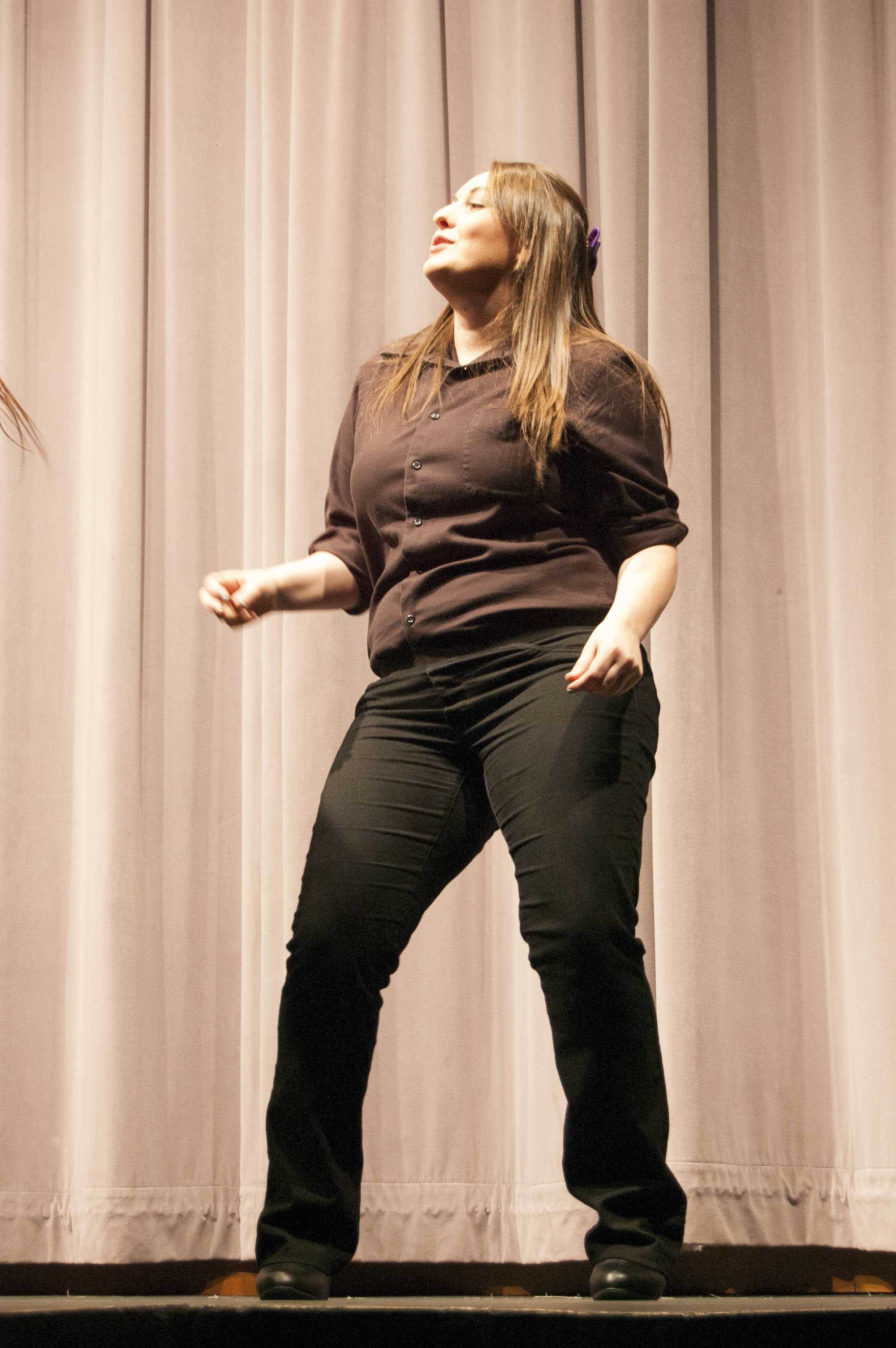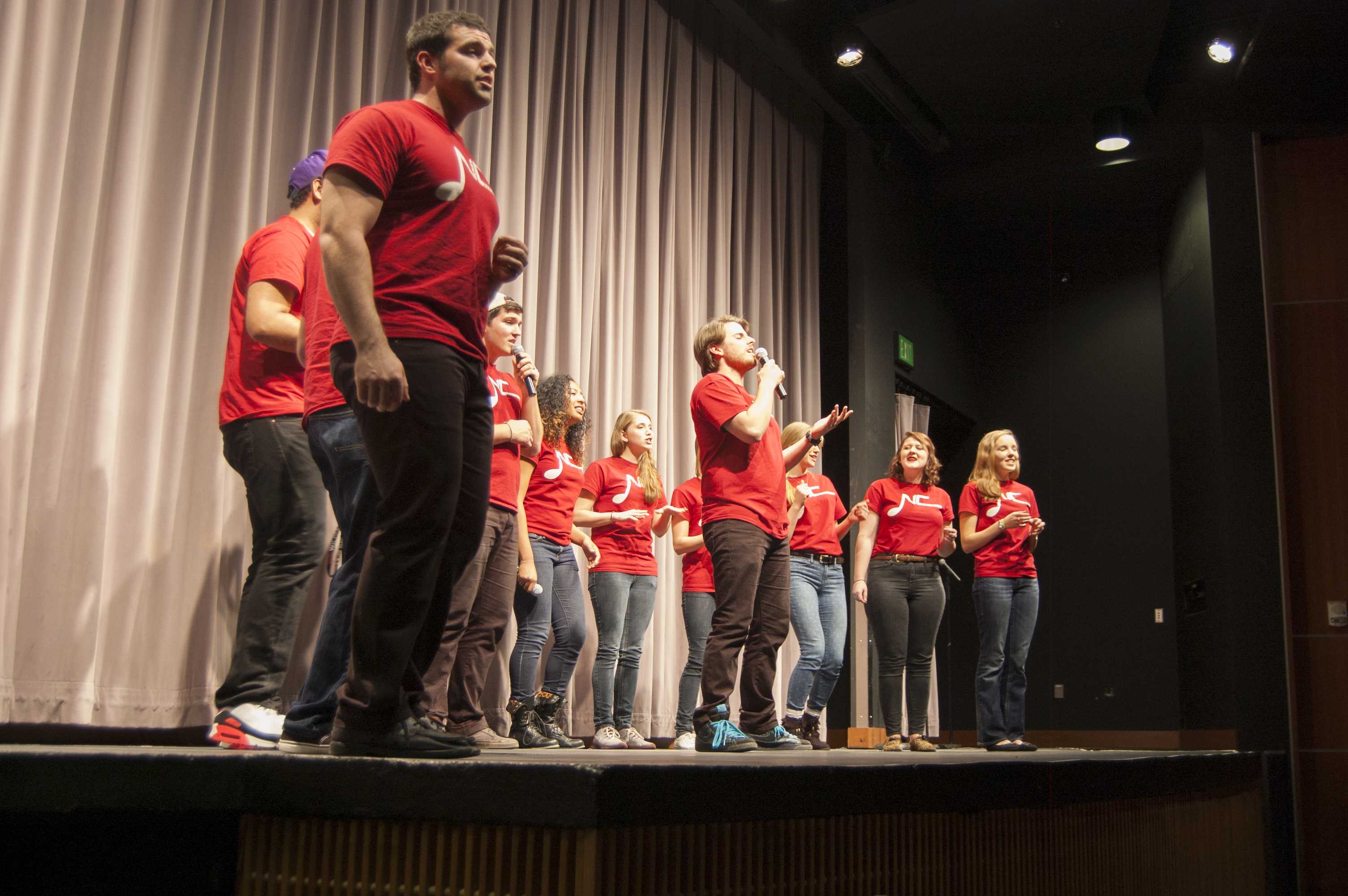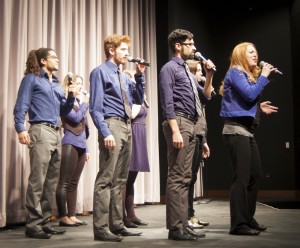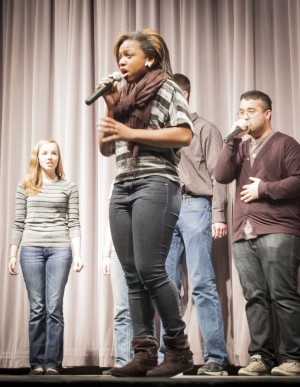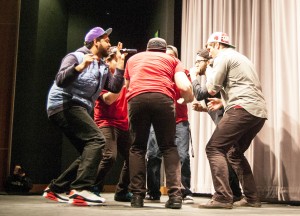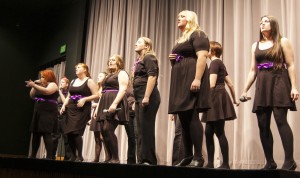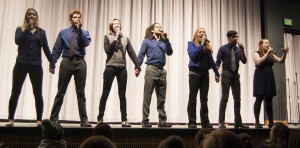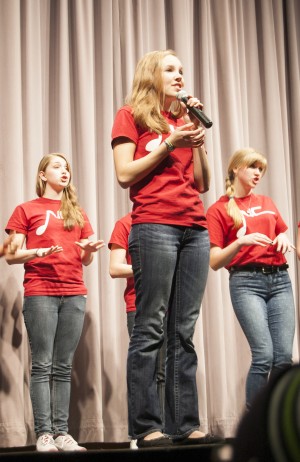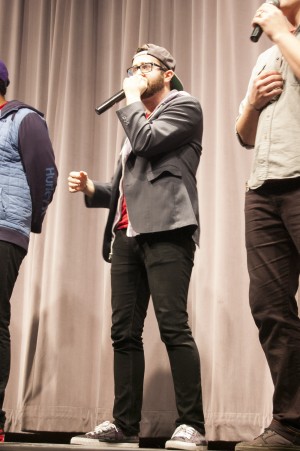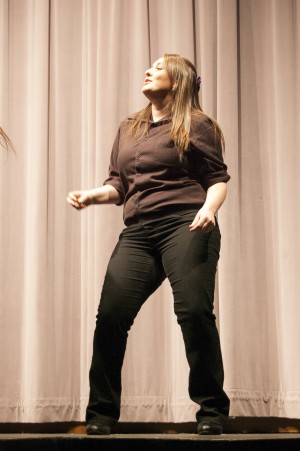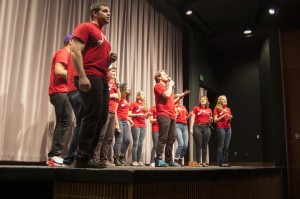The Central Aca-Experience
April 17, 2014
The seven members of Boots ‘n’ Cats stood single-file in the middle of the SURC Theatre stage. It was the beginning of the fifth and final set of the Aca-Extravaganza, which they hosted on March 17. The audience waited patiently as the blue-and-black wearing singers basked in the silence of the room.
Senior music major Aryn Chatterton stood at the front of the line. She brought the microphone up to her red lipstick-coated lips and started the first line of the song.
“Oh, sometimes,” she sang, stressing every note in her alto register. “I get a good feeling.” The low note that ended her melody lingered in the air.
The six who remained silent during her solo forcefully stepped out of the line, belting a blended six-note chord that led her to the next line of the song.
Chatterton sang her next syllable with a soulful rasp that distinguished herself from the rest as senior music education major Bo Mendez conducted the backup singers to pause.
“I get a feeling that I never, never, never, never had before – oh no,” Her choir mates sang the word back to her, with the same intense chord they ended on before.
Shouts and yelps were heard from all over the packed theatre. The song continued as Chatterton’s solo transitioned to senior vocal performance major Emily Salisbury blasting her microphone with Flo Rida’s rap.
Central’s five a cappella groups may have gotten the “Pitch Perfect” when they performed in front of the largest crowd a Central a cappella group has ever seen on campus. The genre’s popularity skyrocketed after the popular a cappella-themed movie, starring Anna Kendrick and Rebel Wilson, came to theaters in 2012.
“They reached a wide audience [with the movie],” Salisbury said. “It was relatable to college students, who are most likely to be doing a cappella music like that.”
“Pitch Perfect” follows the story of the Barden Bellas, who eventually become the first all-female a cappella group to win the International Competition of Collegiate A Capella (ICCA).
Three of Central’s groups competed in the regional ICCA competition in February, where Boots ‘n’ Cats qualified for the semi-final round – a first for any Central a cappella group. The group competeted in California on April 5, but failed to qualify for the finals.
The surge of popularity of the genre, for Salisbury, also came from NBC’s talent show “The Sing-Off,” which had a cappella groups from all over the country competing against one another every week.
“All of the groups that make it [onto the show] are of such a high caliber,” Salisbury said. “It’s just really refreshing.”
One of these groups included Groove For Thought, a jazz group comprised mostly of Central students and alumni (though the group is not a “Central choir”). Groove For Thought competed on the second season of “The Sing-Off,” placing sixth out of 10 groups.
“The cameras and things are weird,” Brennan Baglio, choral conducting graduate student and Groove For Thought member, said about the show. “This idea that you’re performing for eight or nine million people … it doesn’t feel like that necessarily.”
According to Baglio, the popularity of the show, has had a huge impact on the popularity of the genre.
“It’s pretty amazing how that whole contemporary a cappella scene has been growing like wildfire,” Baglio said.
One of a cappella’s most popular groups, Pentatonix, got its start on “The Sing-Off” when they won its third season. The group’s sound is heavily inspired by Dubstep and electronic music, commonly including heavy drum beats and bass lines.
“They’re filthy,” Nicole Prigge, senior exercise science major and founding member of Boots ‘n’ Cats, said. “The things that they do with five voices … it’s something to aspire to.”
Pentatonix’s style of a cappella is different from older groups such as Boyz II Men or Take 6, due to their roots in Electronic music.
“A group such as Pentatonix would not have been as successful as they are now,” James Niles, senior music education major and Groove For Thought member, said. “That style of music was not very popular [15 years ago].”
On Central’s campus, the a cappella buzz began in winter 2010, when (then) freshman music major Isaiah Ragland formed Nada Cantata with friends Rachel Border and Reece Sauve. Now a senior, Ragland is the only founding member of Nada Cantata on campus.
“I was a freshman just looking to get involved and make a mark,” Ragland said. “It was a really exciting opportunity for my first year to get something that I could be a part of.”
Nada Cantata had its first official rehearsal in spring 2010, and later that quarter had their first performance – singing their own arrangements of “Viva La Vida” and “Mario Kart Love Song” at a school talent show.
The performance left the singers of Nada Cantata ecstatic, and they decided to continue on organizing their own concerts and arranging and practicing ever since.
By fall of 2012, Nada Cantata had dozens of students auditioning for them. Ragland said a group of 20 women were turned down simply due to lack of room in the ensemble, but decided instead to have fellow student Daniel McCafferty combine the girls as Treble in Paradise – now known as Pretty Pitches.
Nada Cantata’s Emelia Blunt also took it upon herself to combine a group of those who did not pass auditions, called Blunt Force Trauma. Ragland described the group as being geared toward freshman or music students not far into their major.
“It’s kind of like an entry to the genre,” Ragland said. “It’s not a huge time commitment, but you still get to have fun.”
With Boots ‘n’ Cats, which was founded by Salisbury and Prigge last summer, there are now four established a cappella groups on campus since 2010 – five including 20-20, a group consisting of all of the men in Nada Cantata’s current lineup that specializes in Justin Timberlake covers – all of them formed within the last four years.
Many of the students involved in these groups – including all of Boots ‘n’ Cats’s members – are music students at Central. Ragland said the a cappella groups often get access to the concert hall and other performance halls in the music building to practice – an opportunity even some for-credit ensembles don’t get until days before their performances.
“They’re really protective and particular about people going into the concert hall just to sing,” Ragland said. “It’s pretty great.”
Gary Weidenaar, Central’s Director of Choral Studies, is happy to see the groups’ success. A lot of what Weidenaar teaches in his ensembles and classes can be applied in the student-run a cappella ensembles.
“It’s an impressive movement,” Weidenaar said. “Our students have basically done it all on their own.”
The ensembles are gathering bigger audiences every quarter. At the end of the year, the final Nada Cantata founder will graduate alongside five Boots ‘n’ Cats members. Although the trendsetters will be gone, Ragland thinks the music won’t.
“It’s all about having a good time,” Ragland said. “We’re singing songs that everyone knows, that everyone likes and can relate to.”
Weidenaar said the popularity of the genre also comes with a natural enjoyment of singing.
“Humans have a need to connect,” Weidenaar said. “They have a need to be something greater than themselves, and choirs allow that.”


